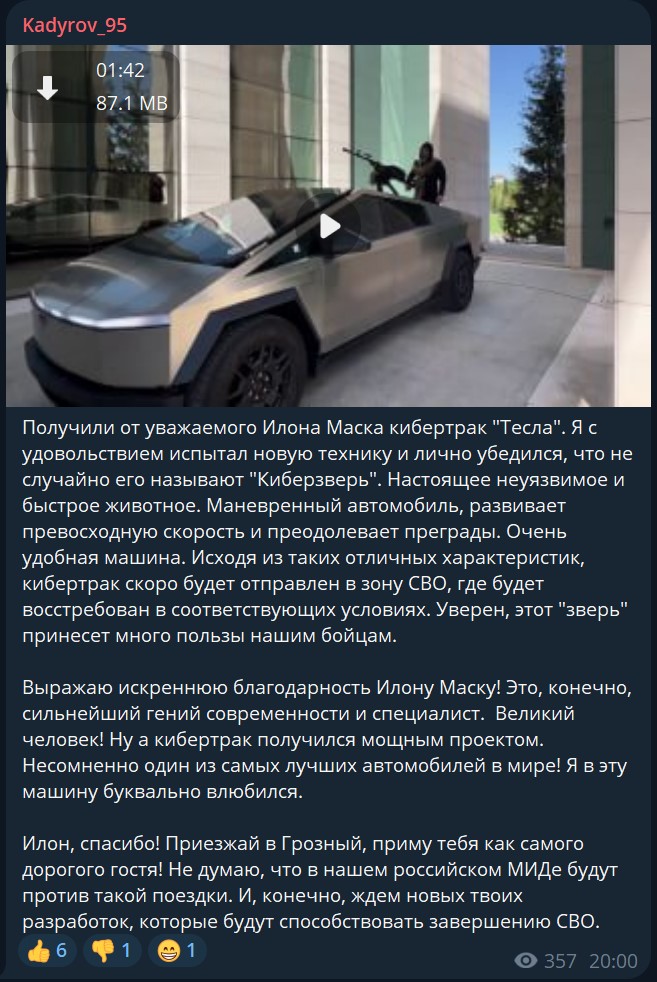Tesla Inc TSLA CEO Elon Musk on Sunday refuted claims of gifting a Cybertruck to Russian leader Ramzan Kadyrov, sparking a wave of speculation regarding the vehicle’s potential use in conflict zones far from its intended market.
Unfolding Events: Musk, in response to accusations made by author Seth Abramson, dismissed the notion of providing military-ready vehicles to adversaries of the U.S. in a tweet, bringing the controversy into the limelight.
The uproar came following images shared by Ramzan Kadyrov, the Head of the Chechen Republic and a high-ranking officer in the Russian military, displaying the Cybertruck with a mounted machine gun.
Kadyrov, through a video posted on the messaging platform Telegram, showcased himself behind the wheel of the Cybertruck with a mounted machine gun, further hinting at its potential deployment in conflict zones such as the Russia-Ukraine border.
Expressing admiration for Musk as a “brilliant mind” and inviting him to Grozny, the capital of Chechnya, Kadyrov praised the capability of the Cybertruck and suggested its imminent use in sanctioned military operations.

While Musk denied any direct involvement in providing the Cybertruck to Kadyrov, the circumstances surrounding the leader’s access to the vehicle remain shrouded in mystery.
Amidst the controversy, it’s crucial to note that Tesla’s Cybertruck, known for its robust design and shatter-resistant glass, is primarily intended for the U.S. market and is currently under limited production in Texas.
With Musk emphasizing the Cybertruck’s durability by showcasing its resistance to firearms during a delivery event, the vehicle’s unexpected appearance in conflict discussions raises eyebrows regarding its potential military utility and global distribution.
Locating Context: The Cybertruck saga underlines the delicate balance between technological innovation and global politics, reminiscent of historical tensions surrounding advanced weaponry and international arms trade.
Moving Forward: As Musk navigates the fallout from the Cybertruck controversy, the incident serves as a stark reminder of the intricate interplay between innovation, geopolitics, and corporate responsibility, urging stakeholders to consider the unintended consequences of technological advancements in a rapidly changing world.
